The reason we all start working out is:
To score some ass Make Gainzzzz so we can score some ass
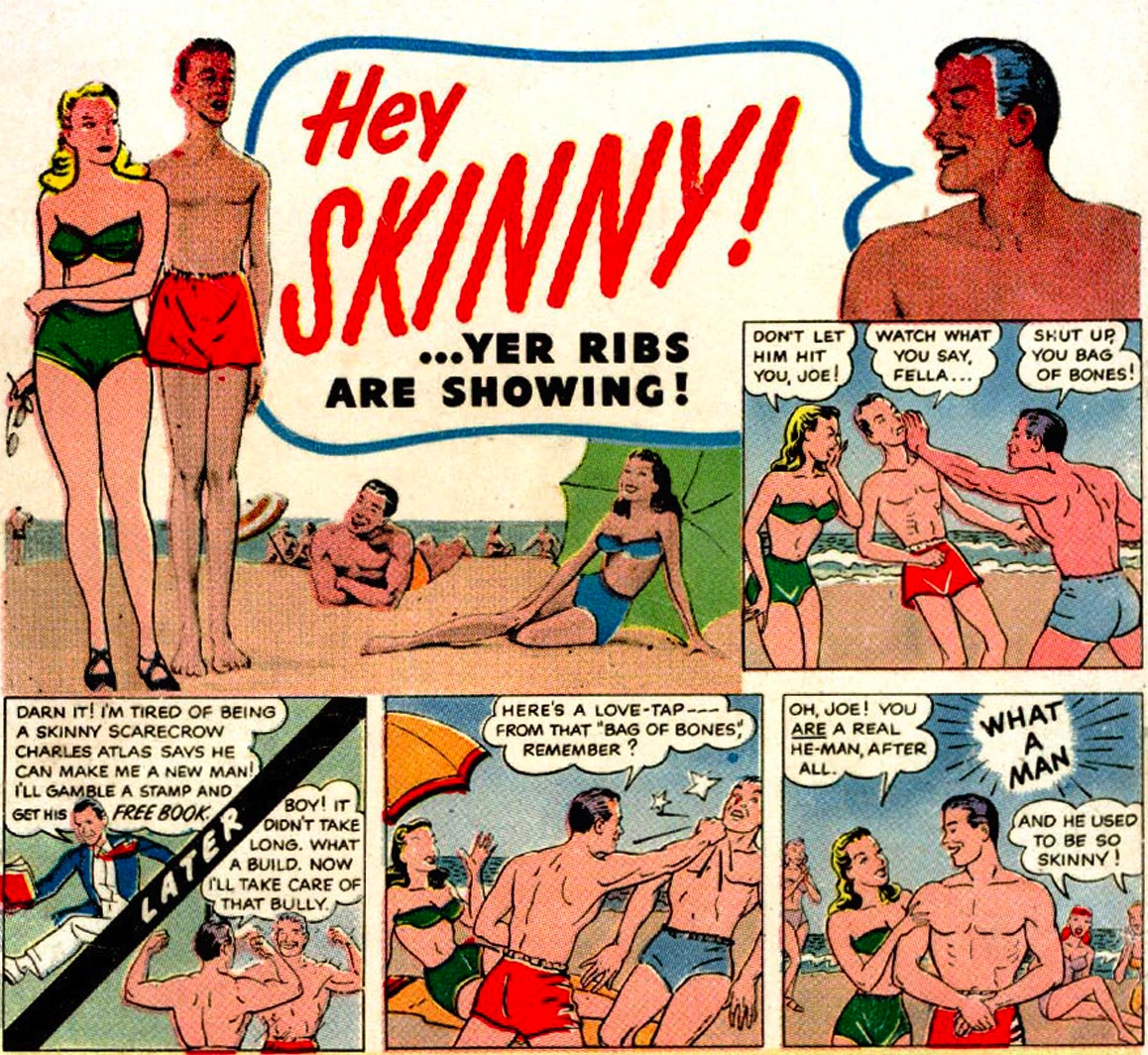
But it’s not always cool, PC, comfortable, to say that and I’m sure some prude with a Huffington Post column will get a hold of this, write some junk about how this mindset is the “problem” with the Health and Fitness/ gym culture.
Except, it’s not.
Ain’t nothing wrong with trying to look alright and make some gainzz along the way.
For those of you who are all like,
“Gainzzz, wtf are Gainzzz?”
Rosetta Stone for the non-bro:
Gainzz = Muscle Hypertrophy
Why is Hypertrophy Important?
Cause it’s Gainzzz and you need some be to a swoldier in the bro nation army. <—–no more bro jokes, last one,…..maybe.
Hypertrophy is what keeps you from being torn apart.
Literally:
As a muscle cell grows thicker, through hypertrophy, it also becomes more resilient to breaking under the same load because there are more protein crossbridges contact points.
This is vital for injury prevention, recovery, performance and longevity.
Staying Off the DL:
Being injured sucks a big one.
The truth is, as a trainer AT ALL LEVELS, from training the guy who’s walked in the gym day one to training an Olympic Gold medalist, your primary job, the thing you can not overlook, is keeping them injury free.
DO NO HARM
All the other performance enhancing stuff?
Important, but secondary.
Hypertrophy keeps us off the DL by increasing resilience to injury.
Here’s why.
A Bigger Muscle is a Stronger Muscle.
Yes, there is the powerlifter vs bodybuilder thing, but a basic facet of muscle physiology is bigger muscle is a stronger muscle.
What stronger actually means: You can create and absorb more force.
The second part of that statement is the important one here.
“absorb more force”
Injuries, My Opinion:
I DO NOT think that muscle tissue injuries in the form of strains and tears come from being inflexible, immobile, or any other number of causes.
I DO think the root cause of any strain or tear is the inability of the muscle to ABSORB force.
For Example:
Football: At the point of impact both players transfer force into each other. Typically, the force transfer will be greater in one direction and that player (mass) will overtake the area of the other player (mass).
Occasionally, muscle tears, strains etc happen during/ after a collision to me, this is evidence that force absorption is the key.
Yes, occasionally, bones break or ligaments sprain.
We have to remember that the force muscles cannot absorb gets transferred into tendons, bones and ligaments. If the muscle force absorption capabilities are overtaken, you’re gonna break.
So fundamentally, if the muscles could absorb the force you wont get torn apart there would be no injury of any kind.
Recovery:
Bigger muscles get better bloodflow
Better Bloodflow = Better Recovery.
That was easy….
Performance:
If a bigger muscle is a stronger muscle than we should all be the size of a house right?
ummmmm YES!
Or not really.
There is a point where too much muscle tissue can be detrimental to performance and aesthetic based goals.
So we don’t need to draw this out.
Ronnie Coleman:
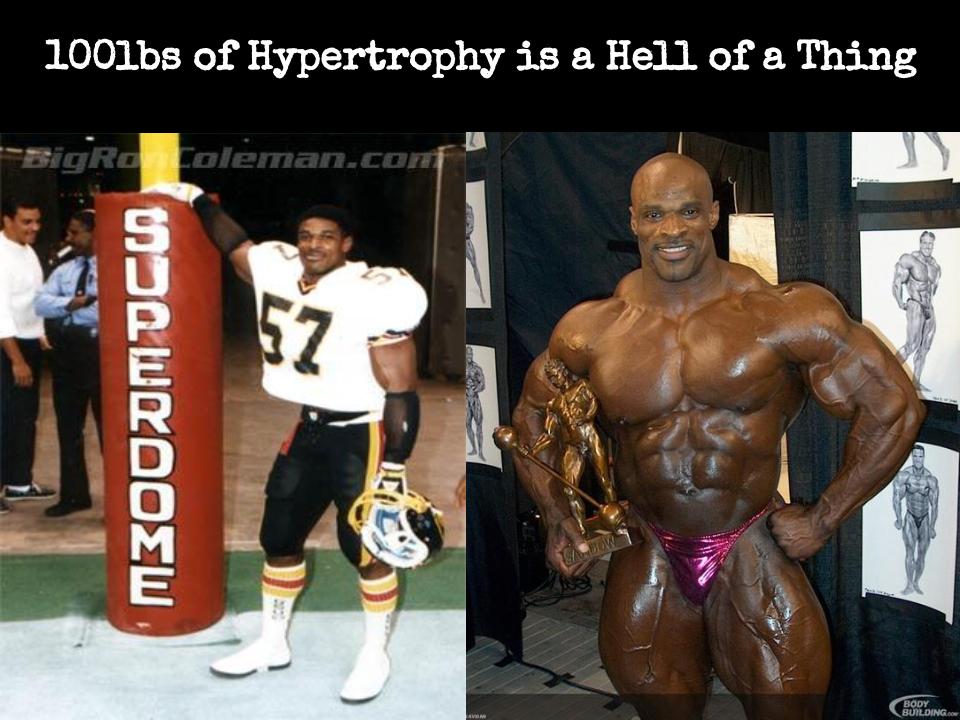
Won the Mr. Olympia a bunch 8 times. No really, he did, GI gut distention and all.
Soooo, yeah, he’s the size of a house, lots of hypertrophy going on there.
But I’m guessing he’s not a really good gymnast, football player or even mall walker at that size, but he is a great (according to the Olympia judges) bodybuilder.
But he was evidently pretty “athletic” @ 100lbs lighter.
*and before you go, “Ohhh but he only played at Grambling”. I know you’re really good at Madden, just never got your shot, and can throw a football clear over them mountains. But yeah, that’s a Division 1 scholarship program. How many people paid for your education in exchange for your athletic abilities?
And most chicks, hell, dudes, for that matter, think he’s more gross Freak Beast monster than man @ the Olympia size.
Quick Maybe Myth:
Sarcoplasmic vs. Myobfibril hypertrophy doesn’t seem to be a thing, at least not in “average” people.
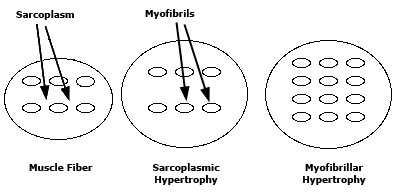 from http://www.bodyessence.ca/
from http://www.bodyessence.ca/
It was thought that some muscle fiber growth was due to an increase in muscle cell cytoplasm.
Basically, the cell would increase in size without laying down contractile proteins as a result of higher rep (time under tension) training that produces more “cellular/ metabolic” waste products than heavier training which would create more damage to the muscle fiber proteins but not have the time to create such an acidic environment.
In short, this probably aint the case.
“linear distance between myofilaments as well as the ratio of actin to myosin filament did not change with training.”- Claassen H, Gerber C, Hoppeler H, Lüthi JM, Vock P.
While hypertrophy in the muscle cell is the same across the board, the type of training (stressor) applied will dictate which type of fiber, fast or slow twitch is primarily being stressed and undergoing growth.
That said, I DO think it’s still a plausible theory for adaptation with extremely high level athletes who are accumulating massive amounts of metabolites in the muscle tissue in very acidic environments. Think, professional level body builders or short track cyclists.
They’re both training muscles at a VERY high level of muscle tension, muscle damage and metabolic stress (this will make more sense later).
Something has to give.
Why wouldn’t the muscle cell, at some point, NOT lay down more contractile proteins but instead fill with more water and cellular stuff to mitigate the highly acidic environment that is being created?
You wouldn’t necessarily need more contractile tissue (which is HIGHLY energy dependent/ costly) IF you could keep the ones you have from accumulating fatigue and dropping out, by buffering H+ ions.
That said, I don’t think we’re talking about grandpa and his morning walk here. <—-this is where research on average people has it’s limits…
Why You Should Add, Or At Least Try Desperately To Keep Some Muscles:
Cause Bro, you’ll get laid more<—Sorry, I had to, that was like a ball on a tee.
A bigger muscle is a stronger muscle.
As you age, you’re going to lose it, unless you do something about it.
This study contradicts the common observation that muscle mass and strength decline as a function of aging alone. Instead, these declines may signal the effect of chronic disuse rather than muscle aging. Evaluation of masters athletes removes disuse as a confounding variable in the study of lower-extremity function and loss of lean muscle mass. This maintenance of muscle mass and strength may decrease or eliminate the falls, functional decline, and loss of independence that are commonly seen in aging adults.- Andrew P. Wroblewski, MBS, BS; Francesca Amati, MD, PhD; Mark A. Smiley, MBA, BS; Bret Goodpaster, PhD; and Vonda Wright, MD, MS
F-You Father Time
Even then, you might, and probably will lose some as you age.
And Hypertrophy?
This Sh@t is like the Fountain of Youth.
Well, here is a basic part of my belief: as we age, the importance, literally it is a life and death struggle, about the need for hypertrophy and joint mobility can’t be minimized. I honestly argue that it is so important that mistakes here can be fatal: simply look at what happens when many people slip and break something after a certain age. Moreover, hypertrophy and join mobility are the fountain of youth.- Dan John
Ever know some jacked old dude?
Ever surprised at how youthful he still is?
How much better he moves?
How much easier life is?
It’s cause he still has muscle mass.
He’s got a structural support system to facilitate strength, power, resilience, mobility.
All these things, in some way and on some level are enhanced and maintained by having musckles.<—-it’s not a typo, it’s the Russian pronunciation.
So you’re going to want as much of it as you can get.
How to Train for Hypertrophy:
There are 3 Primary Mechanisms For Hypertrophy.
Mechanical Tension: How much strain is the muscle put under
Think of this primarily as heavy load/ low rep training.
It places a tremendous strain on the muscle tissues, but doesn’t last long enough to tear them apart too much or to accumulate a lot of cellular byproducts.
Muscle Damage: How much of the muscle tissue itself is damaged
This is the “bodybuilding” weight and rep range.
65-80% of 1 RM for 8-12 reps.
It’s enough load to ellicit a low to moderate amount of muscle strain from the beginning, but it’s also low enough to allow for continued damage to accumulate (reps).
Metabolic Stress: The accumulation of metabolites (cellular crap) due to fatigue in the muscle cell.
This is the high rep 20+ rep set.
This type of training is the “burnout” or dropsets to failure.
The load is fairly low, so the muscle can easily handle the load but the cells are continually taxed due to the repetitive nature and cellular waste (metabolites) accumulate in the muscle cells.
Because there are multiple ways to illicit muscle growth you’ll see totally jacked powerlifters and weightlifters despite the fact that they tend to do most of their work in the lower rep ranges, 1-5RM.
While bodybuilders tend to skew towards higher reps 8-20RM.
My 2 Cents:
If you can, use all three methods.
In my experience, that’s going to be your best bet for continued, long-term progress.
If you lift heavy all the time, you’re going to burn out and/ or break, not to mention “harden” your CNS eventually and hit major plateaus.
If you lift in the mid range all the time, you’ll learn how to be slow (relatively) and not so strong, which will limit your future potential for adding weight to your reps.
You might be good at 10 reps, but you’ll probably suck at a 1, 3, 5RM.
Simple math: The guy who squats 500 for one can do 315 for some reps pretty easy.
The guy who can squat 315 for 20 reps, may not be able to do 500lbs for a single <—-But he’s obviously strong as all hell.
In Real Life:
1993: Hatfield vs. Platz- A Squatters Wet Dream.
Dr. Fred Hatfield is generally considered to be the first man to squat 1,000lbs (there is some debate about this), but regardless, he did, and that’s a shit ton of weight.
Tom Platz had what are maybe the biggest legs eva’.
obviously.
Here’s how it played out:
Although Tom’s legs were much bigger than Fred’s, Fred kicked his butt in a one-rep max, hoisting 855 pounds to Tom’s 765 pounds. But when they took some plates off the bar and decreased the weight to 525 pounds for a test of lower-body endurance, Tom dusted Fred, performing 23 reps compared to Fred’s 11.- Bret Contrereas
To the video:
Ain’t that some shit…
Point being, how you train, the manner of loading affects the physiological outcomes.
So there’s a lot of value training across all the rep ranges and loading ranges.
Typically this is known as the “Powerbuilding” approach.
You’re training with equal emphasis on strength and size.
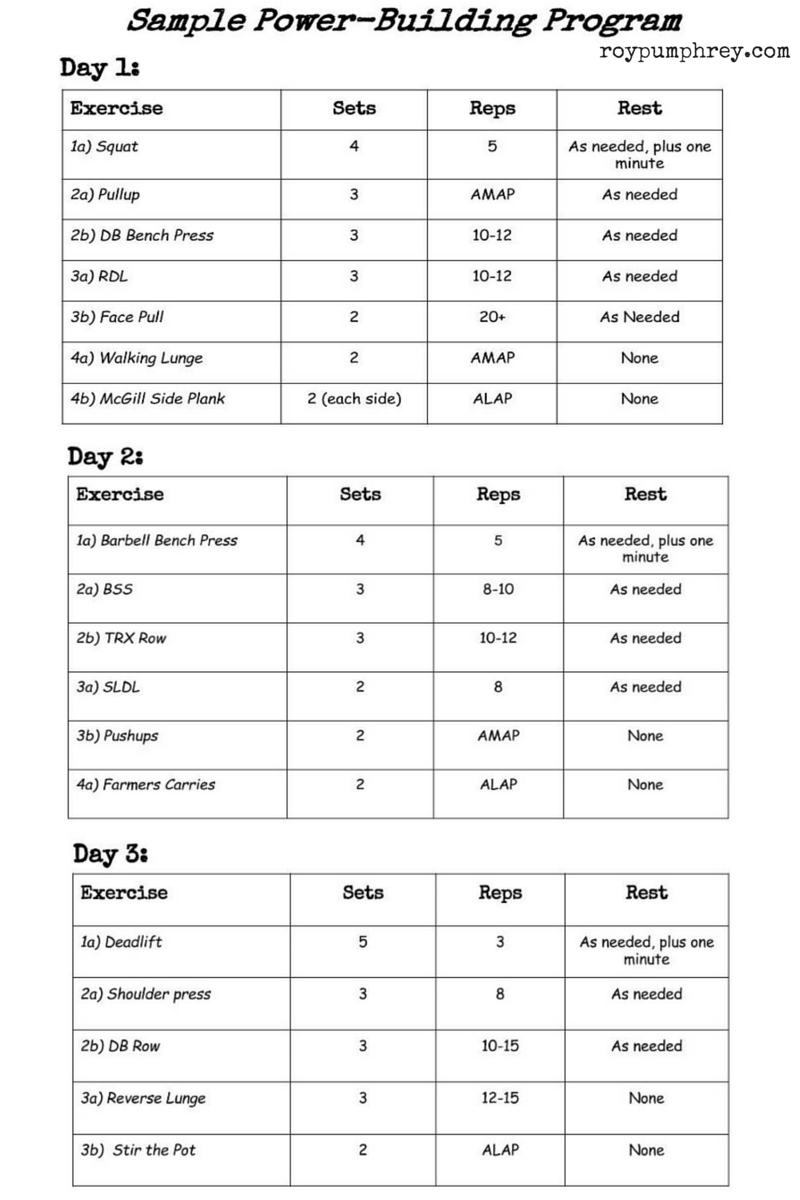 Click on it and you can download it as a PDF if you want.
Click on it and you can download it as a PDF if you want.
Take Home:
Train across all set, rep and loading schemes.
As long as you’re adequately fatiguing the muscle, and fueling the rebuilding, you’ll create hypertrophy.
It might be a looooonnnnngggg process, and you might not gain as much as you hoped.
But it’s better than losing. And if you do nothing, you will lose.
Get your azz in the gym, train like a beast and get some gainzzz.
You’ll look better, feel better and live, maybe not for longer (modern medicine can prop up just about anyone today) but it’ll be a whole hell of a lot better.

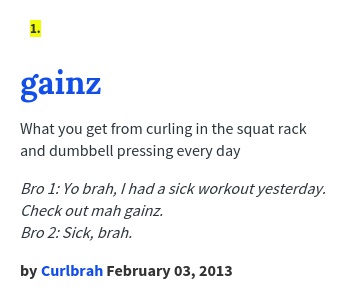
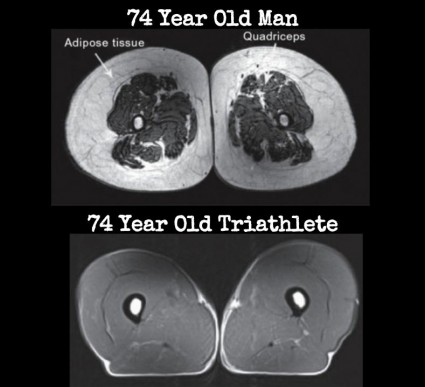


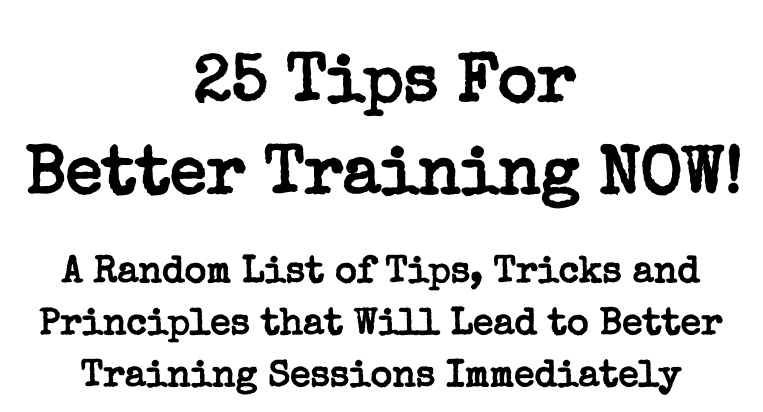
[…] Plus you wont be as strong and you’ll get less Gainzzz. […]